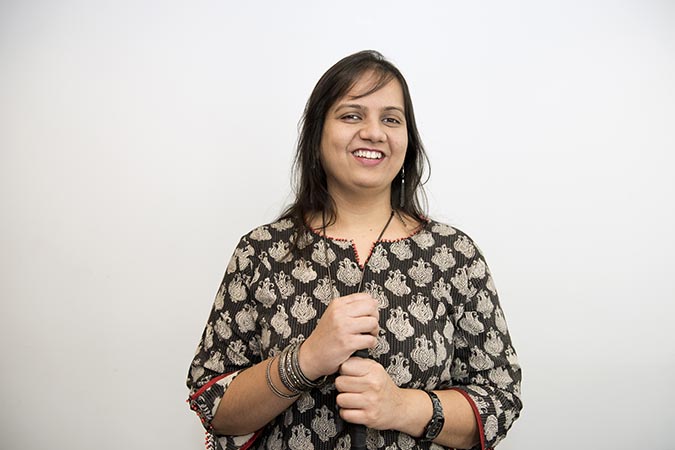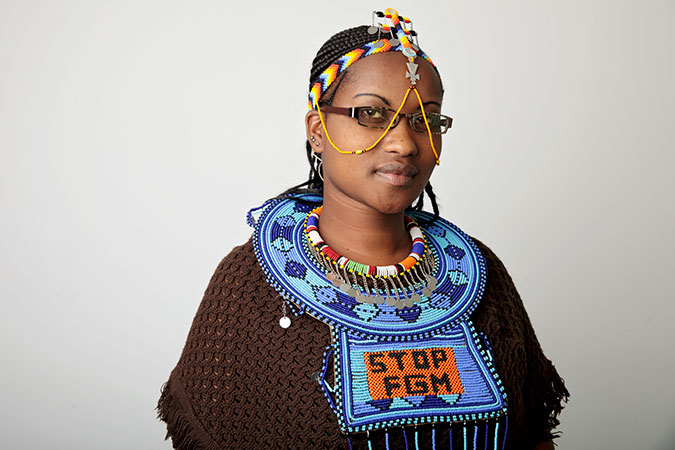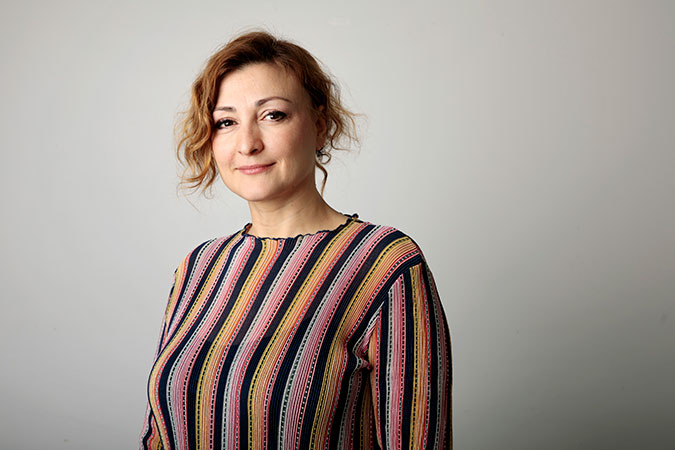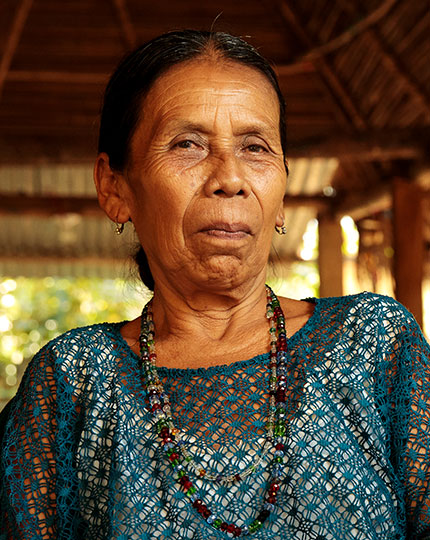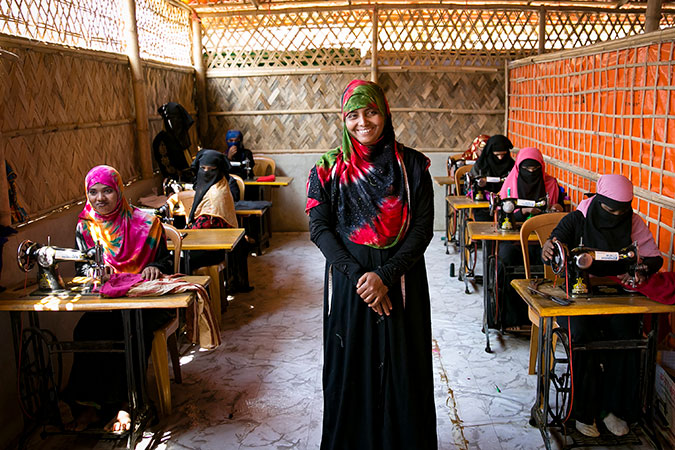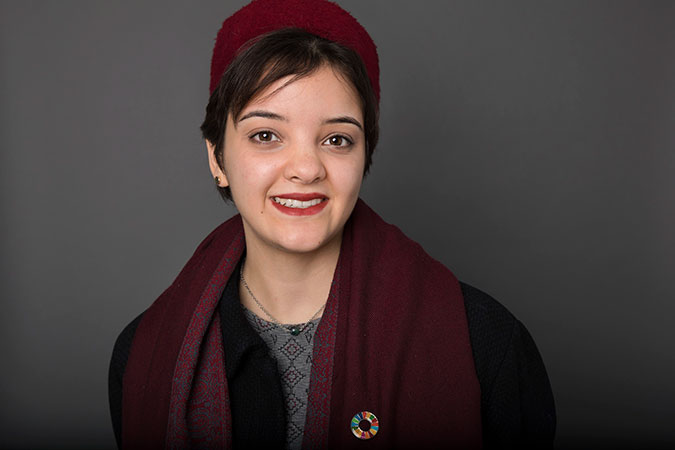Six things we learned from women’s resistance in 2018
Date:
This story was originally published on Medium.com/@UN_Women
2018 was the year of women’s resistance. From the launch of the #TimesUp Legal Defense Fund to tackle sexual harassment in workplaces nationwide, to the Nobel Peace Prize being won by those working to end the use of sexual violence as a weapon of war, this year was all about advocating for women’s rights. Women and gender equality activists from around the globe are using their voices to call out inequality and rally communities for a better future for all.
As 2018 comes to a close, we’re taking a look back at stories from some of the women who rose against injustice, defied stereotypes and inspired us all.
Leave no one behind
Nidhi Goyal is feminist from India who works on disability rights and gender equality. As a researcher, writer, trainer, stand-up comedian and advocate, she works to raise awareness on the intersection of the disability rights movement, and the women’s movement.
“For me, the real victory will be when you have to stop justifying that women with disability belong to both movements. That’s when we know the cracks will be filled. When I don’t have to justify that different groups have to engage with women with disability. We need to start opening up those spaces and dialogues,” Nidhi says. “We need to start with the premise that these spaces belong to everyone.”
Mentorship matters
Purity Soinato Oiyie, from Kenya, escaped female genital mutilation (FGM) and child marriage when she was just 10 years old. Today, she dreams of starting a school for girls in her Maasai community. But even now, Purity is making a difference in the lives of the girls in her community by speaking out against female genital mutilation and child marriage.
By visiting schools in rural communities and talking to young girls and boys about her own experience and the negative effects of FGM, Purity is not only helping to eradicate the practice, but showing girls the possibility of a different future.
“They are surprised to see an educated Maasai girl,” she says. “Today, my father is so proud of me. He is telling everyone that I have come to New York! Now all the parents in my community who didn’t want their girls to go to school, tell their girls to finish school, like Purity!”
Support survivors
Marija Andjelkovik was one of the first activists to raise the issue of human trafficking in the Balkan region. Her experience working on prevention of trafficking inspired her to create a non-governmental organization, ASTRA-Anti trafficking action, to provide support and services to the survivors of trafficking and to advocate for support and policy improvements from the government and other service providers.
“I have been working on this issue for 18 years now,” says Marija. “I go on, because I cannot say to a victim that my project is finished and the funds are finished, so they can’t go to a lawyer or a doctor. I want a sustainable system in place, supported by the Government, so that the victims of trafficking don’t need Marija or ASTRA.”
Persist in the face of all obstacles
It took more than 30 years for the abuelas of Sepur Zarco to receive justice for the systematic rape and enslavement by the military that they endured during the Guatemalan internal armed conflict. Popularly known as the abuelas, the 15 women survivors took their case to the highest court of Guatemala in 2011. The court convicted two former military officers of crimes against humanity on counts of rape, murder and slavery, and granted 18 reparation measures to the women survivors and their communities. This was the first time in history that a national court prosecuted sexual slavery during conflict using national legislation and international criminal law.
And now, the abuelas, including Demesia Yat, are still using their voices to call for justice for their communities, including education for the children of their community, access to land, a health-care clinic and such measures that will end the abject poverty their community has endured across generations.
“Our effort, first as women, and second as grandmothers, is very important. It’s true that we got justice. We are now asking for education for our children and grandchildren so that the youth in the community have opportunities and aren’t like their elders who could not study,” says Demesia. “Our claims are with the government. We waited for many years for justice, now we have to wait for reparations.”
Solidarity changes lives
In the makeshift Rohingya camp at Balukhali, Cox’s Bazar, it’s common to hear stories of burned homes and missing children. The Rohingya women tell stories of their murdered husbands and rape, of losing hope in human-kind.
“Being a refugee myself, I know the struggles that other Rohingya women face in the camps,” says Nur Nahar, a mentor at a Multipurpose Women’s Centre inside the camp. Nur, now 35, arrived in Bangladesh when she was just 7 years-old, and now works to help the women and girls arriving in the camp.
“I come to the Multi-Purpose Women’s Centre four days in a week and teach tailoring to the women who are new. Since I have been here for a long time, I am part of the Women Support Group and I provide information to other refugee women, refer them to appropriate services, and I talk to them. Women need support from each other to cope with this crisis.”
Listen to the next generation
“It would be a better world if women and girls felt safe in public spaces. Women would be more active, more productive,” says Salma Belhassine, a 21-year-old activist from Tunisia.
Salma and her collaborators are working on a mobile app called SafeNes, to increases awareness of sexual harassment and help end the harassment of women in public spaces. Through SafeNes, users will be able to report sexual harassment, easily connect with non-governmental organization if they need help, as well as learn self-defense and understand the legal procedures for reporting sexual harassment.
“The best thing young people can do is to make noise, speak out for ourselves. Because we are not the future, we are the present. We can't wait for the adults to do things for us. We have to stand for ourselves and for future generations,” says Salma, who is a part of the Youth Leadership Programme led by UNDP in partnership with UN Women.
